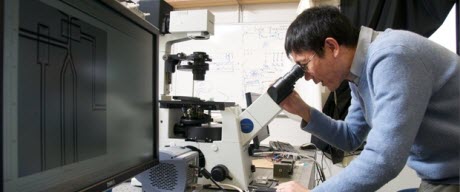WASHINGTON (Nov. 2, 2015)—The average length of time for premarket approval of a new medical device in the U.S. is four and a half years, nearly five times longer than in Europe. To address this challenge, the George Washington University (GW) has launched a first-of-its kind master of engineering degree program in regulatory biomedical engineering (rBME) to educate engineers who can navigate the regulatory process and help bring new inventions to market faster.

To continue reading this article, sign up for FREE to
Membership is FREE and provides you with instant access to eNewsletters, digital publications, article archives, and more.
Already a member? Login Here











